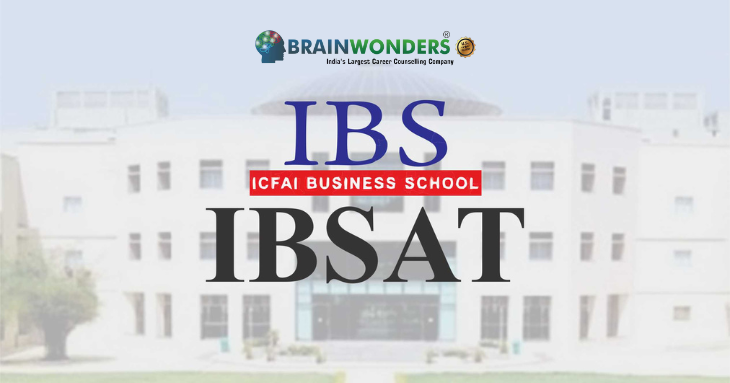

Are you aware which subjects and courses will bring you closer to your dream career?
Worry not, because the Brainwonders test and guidance will not only help you know it, but also follow it!
Blog
13 September,2023 | By Brainwonders

BA in Economics or Bachelor of Arts in Economics is a 3 years Undergraduate degree course pursued by students who aspire to make it big in Banking and Finance and other major corporate industries.
Admissions to the BA in Economics program are granted through a combination of merit-based selection and entrance exams. Several renowned colleges offering this program, such as the Indian Statistical Institute, Jawaharlal Nehru University, and Jadavpur University, conduct entrance exams like JNUEE, DUET, and JMI EEE for admission.
The typical tuition fees for a BA in Economics program vary, ranging from INR 15,000 to 65,000. After completing their BA in Economics, students have the option to further their studies with an MA in Economics, a PhD in Economics, or an MBA. Graduates of BA in Economics programs find employment opportunities in various sectors, including Indian Economic Services, banking and finance, and private and foreign banks.
Many students choose to study economics primarily for the promising job opportunities it offers, with starting salaries typically ranging from INR 4 LPA and the potential for significant growth to 30 - 35 LPA with experience and exposure.
| Name of the Course | Bachelor of Arts in Economics |
| Course Level | Undergraduate |
| Course Duration | 3 years |
| Course Mode | Regular / Full time |
| Course Eligibility Criteria | Class 12th Board exams with 50% aggregate marks |
| Course Admission Process | Merit Based / Entrance Exams |
| Average Course Fees (INR) | 45,000 |
| Average Salary (INR) | 3 - 4.5 LPA |
| Areas of Employment | Government / Private Banks, Finance & Banking Sectors, Trade Markets |
BA in Economics deals with the study of various economic theories, econometrics, applied economics, and a wide range of related subjects. This undergraduate program is available to students upon completion of their 12th-grade board exams and is offered in colleges and universities nationwide.
BA in Economics primarily focuses on topics such as Demand and Supply, History of the Indian Economy, National Income, Inflation and Deflation, and Production and Supply, among others. Given the significant emphasis on handling extensive data in economics, the importance of statistics is deeply integrated into the course.
In recent years, the field of Economics has experienced a substantial surge in popularity due to the numerous opportunities it presents. Graduates of BA in Economics programs can expect to receive starting salary packages ranging from INR 4 to 7 LPA.
Several factors contribute to why you should consider pursuing a BA in Economics. Below, we outline some key points for your reference:
Admissions to the BA in Economics program are determined through a combination of merit-based selection and entrance examinations. The entrance exams typically consist of multiple-choice questions (MCQs). However, the inclusion of subjective questions may vary depending on the syllabus and the specific entrance exam format of the college.
Prospective students interested in enrolling in BA in Economics programs must meet the following eligibility criteria to gain admission to colleges that offer BA in Economics courses:
Students aspiring to pursue a BA in Economics must successfully pass the prescribed entrance exams for the program. Certain colleges admit students based on their performance in entrance exams, followed by an interview round.
Various colleges conduct entrance exams such as JNUEE, DUET, Jadavpur University Entrance Exams, JMI EEE, and more to select candidates for BA in Economics courses.
| Exam Name | Application Period | Exam Date |
| NPAT | December 01, 2022 to May 21, 2023 | January 04, 2023 – May 31, 2023 |
| PUCET | To be Announced | To be Announced |
| IPU CET | March, 2023 to April, 2023 | April 2023 |
| JNUEE | To be Announced | To be Announced |
The BA in Economics curriculum encompasses an extensive array of subjects, spanning from Financial Systems and the History of Economics to Financial Markets and Foreign Economic Theory. The table below outlines the topics covered throughout the three-year course duration.
| First Year |
|
| Second Year |
|
| Third Year |
|
| Semester I | Semester II |
|
|
| Semester III | Semester IV |
|
|
| Semester V | Semester VI |
|
|
Some of the top colleges in India that offer B.A. In Economics -
The initial program we will explore, which can be pursued immediately after completing a BA in Economics, is an MA in Economics.
Below, you will find the fundamental prerequisites for pursuing an MA in Economics:
After earning their Bachelor's and Postgraduate degrees, students have the option to pursue research studies or a PhD in Economics. Here are some essential prerequisites for undertaking a PhD in Economics:
The average post-graduation salary for graduates with a BA in Economics typically falls within the range of 3.5 - 5 LPA. However, individual salaries may vary based on the specific position and job responsibilities.
Here are some job profiles for BA in Economics graduates, along with their average salaries:
| Job Profiles | Average Salary (INR) |
| Investment Banker | 6 - 8 LPA |
| Financial Analyst | 5.5 - 9 LPA |
| Stock Broker | 6 - 9 LPA |
| Auditor | 4 - 8 LPA |
| Systems Analyst | 4 - 6 LPA |
B.A economics is a vast course that provides extensive knowledge about the practical and technical concepts that run the world.
A student needs to develop many skills to reach their professional goal. The following blog from Brainwonders might help you understand those necessary skills for a better future Top 8 Skills of the Future: Let’s talk about developing them. Here at Brainwonders, we provide certified career counselling by the best career counselors. They will help you at each step to decide your career path. This guidance will be based entirely on understanding your innate abilities, assessed through a well-research method called DMIT. For any more queries, please feel free to contact us.
Q1. Is a BA in economics good?
Ans: An economics degree provides a strong foundation for pursuing careers in finance and related fields. Common career trajectories for economics graduates include roles in data analysis, such as becoming an actuary or investment analyst. For those seeking positions directly related to economics, further education or specialized training is often advisable.
Q2. What are the subjects in BA economics?
Ans: The Bachelor of Economics, often referred to as BA Economics, is a three-year undergraduate program that encompasses both qualitative and quantitative aspects of economics. It covers subjects such as microeconomics, macroeconomics, econometrics, statistics, economic history, and political economy, among others.
Q3. What jobs can you get with a BA in economics?
Ans: Economist is a common career path for economics graduates.
Q4. Which is better BCOM or BA economics?
Ans: When making the choice between a B.Com and a B.A. in Economics, it's essential to consider your personal interests and career aspirations. If you're inclined towards banking and business, opting for a B.Com degree is a favorable path. Conversely, if you have a strong interest in exploring topics related to supply and demand dynamics and the behavior of goods, pursuing a B.A. in Economics is the more suitable option.
Worry not, because the Brainwonders test and guidance will not only help you know it, but also follow it!



,_Syllabus,_Pattern,_Old_Question_Papers.png)

